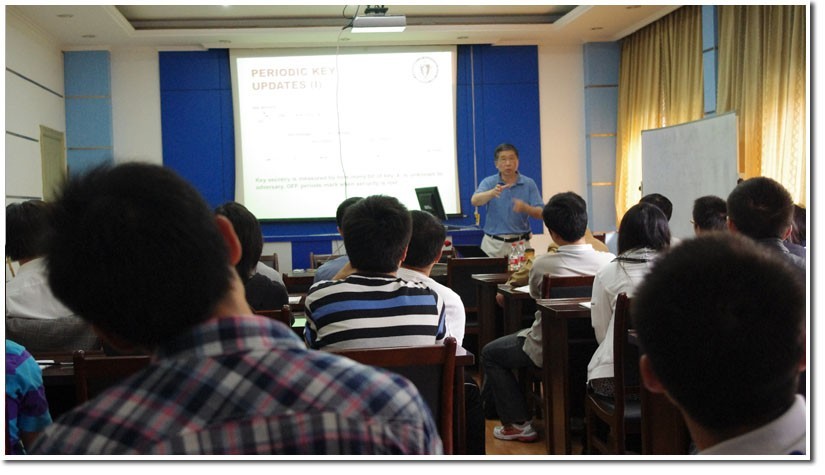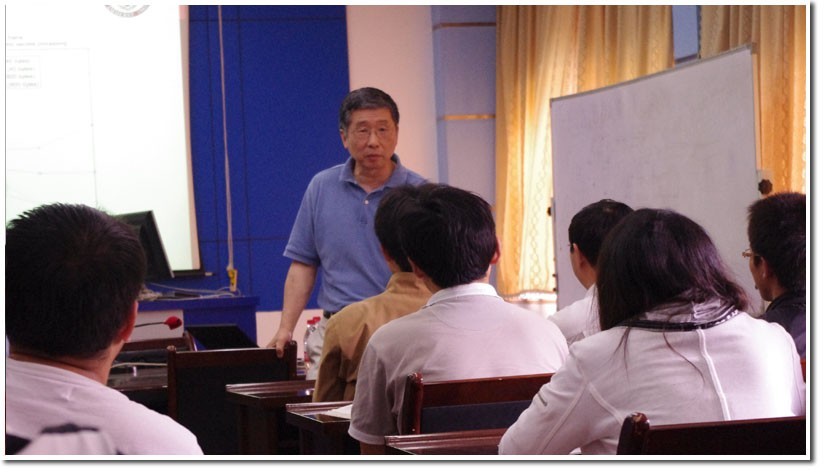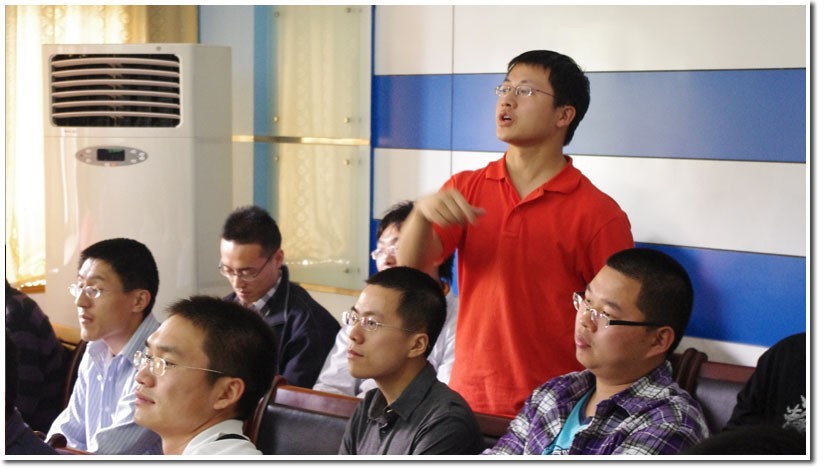IEEE Fellow, Prof. GONG Weibo Visits USTC
IEEE Fellow, Prof. GONG Weibo from Massachusetts University, Umass Amherst, Electronic and Computer Engineer Dept. paid a visit to School of Information Science and Technology, USTC, and gave a cutting-edge academic report entitled "Dynamic Secrets in Wireless Communications" in west campus, May 25th. Prof. XIONG Junlin and some other professors from Dept. of Automation attended the report.

The report, which is also part of the activity series "High-level Forum for Graduate Innovative Education" hosted by the Graduate School, emphasized security in the rapid development of wireless communication. On the issue of Dynamic Key technology, Prof. GONG proposed an innovative technology which uses noise to realize the simultaneous change at the sending and receiving end of communication. He made a vivid metaphor that noise is inexhaustible and unpredictable just like the power Titan acquires from earth.
When talked about the application prospects, Prof. GONG believed that this technology may play an indispensable role in various fields since security is becoming more and more important nowadays.

At the end of the report, Prof. GONG and the audiences present exchanged their views and gave exact but humorous answers to each questions proposed.

Prof. GONG Weibo is an alumnus of USTC graduated from Dept. of Automation in the year 1982. He received his Master and Doctor degree in 1985 and 1987 separately from Electronic Engineering Dept., Harvard University. Prof. GONG was elected as IEEE Fellow in 1999 for contributions to the analysis of discrete event systems, and modeling and simulation of complex systems. Prof. GONG is the leader of Complex Systems Modeling and Control Laboratory in Massachusetts University, his research field includes computer network, communication systems, and complex systems etc. His paper Secure Wireless Communication with Dynamic Secrets won the honor of One of the Best Three Papers in Infocom 2010.
1.jpg
